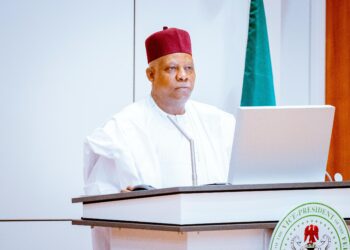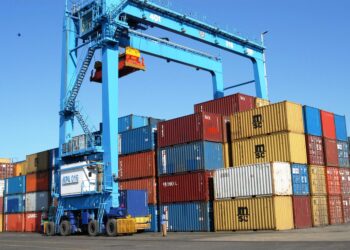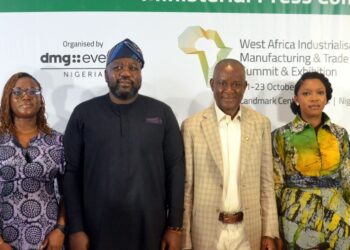Inclusive economic development remains one of the core elements of both the African Union’s Agenda 2063 and the United Nations Sustainable Development Goals (SDGs). In furtherance of this, article 3(e) of the AfCFTA main Agreement and article 27(2)(d) of the Protocol on Trade in Services specifically mandate State parties to promote gender equality and “improve the export capacity of both formal and informal service suppliers, with particular attention to micro, small and medium-sized; women and youth service suppliers.”
With over 60 percent of its population being under the age of 25, Africa is regarded as the youngest continent in the world. This presents both challenges and opportunities for the continent. For instance, in Nigeria, the young population has led to attendant social risks as unemployment nears 40% creating a ticking time bomb. The popular saying is that an idle mind is the devil’s workshop.
On the positive side, however, the young population when properly harnessed will heighten productivity and provide affordable labour which in turn may lead to increase in investment. Nigerian youths just like their counterparts in other African States are known to be very innovative and enterprising. With the right policy and the enabling infrastructures, this energic population can drive the AfCFTA agenda.
Relatedly, women constitute most of the players in the SMEs ecosystem, accounting for nearly 90% of the labour force in the informal sector. A visit to the popular Balogun market in Lagos Nigeria will attest to this fact. No doubt, regional informal trades amongst women and youth within the ECOWAS region have been going on even before AfCFTA. But the new trade deal is meant to open the door to a population of 1.3 Billion people with a combined GDP of USD2.6 Trillion.
This is a huge opportunity and further buttresses the need for gender-sensitive and youth-centric implementation that will ensure sustainable and inclusive growth. As noted by a commentator, women and youth traders are less likely to be equipped with the appropriate skills, technology and resources that would enable them to benefit from trade and trade liberalization as they continue to suffer from invisibility, stigmatization, violence, harassment, poor working conditions and lack of recognition for their economic contribution.
These challenges are made worse by non-tariff barriers such as poor infrastructure, insecurity, lack of access to funds, high unemployment, weak currency, cost of capital, multiple taxations, and other regulatory hurdles. A clear example of the hurdle being the recent intervention by the agencies of the Federal Government of Nigeria in the areas of FINTECH and Cryptocurrency.
Just last week, the Securities and Exchange Commission issued a circular advising Capital Market Operators to sever ties with platforms that facilitate access to trading in securities listed in foreign markets. While recognizing the role of the regulators to protect the investing Nigerian public and their assets, however, the interventions have been interpreted by many as capable of sending a wrong signal and acting as disincentives to innovation. Again, this brings to the fore the need for Continental Free Trade that fosters inclusiveness with member States initiating policies that create more opportunities for the youth and women.
At the webinar held on 29 March 2021 to mark the signing of the MOU on strategic partnership between the AfCFTA Secretariat and the United Nations Development Programme (UNDP), the AfCFTA Secretary-General Mr Wamkele Mene re-echoed the need for inclusiveness in the AfCFTA implementation with the following words:
“We’ve learnt from other trade agreements in the world. And the lesson to draw is that if a trade agreement neglects the most vulnerable segment of the society, if a trade agreement is perceived to benefit only the multi-national corporations, only the elite, it shall not succeed and it shall not have legitimacy as far as the citizens are concerned. And so that is why I have made it my priority in the implementation of this agreement that there should be shared benefits, there should be shared responsibility with Africans across the length and breadth of the African continent in concrete areas such as affirmative action for women in trade. We are looking at concrete ways in which we can expand the benefit for young people and for women in trade. This is the type of development that we require in order to make this agreement successful. This is the type of development that we require to make sure that the benefits are inclusive.”
This Statement coming from the AfCFTA Secretariat is a clear indication of the aspiration towards gender-balanced and youth-sensitive AfCFTA. However, one is not unmindful of the limited role of the AfCFTA Secretariat in the implementation process. The actual implementation is done at the national and regional level. And this is not to underestimate the very critical albeit complementary role that the Secretariat plays in this regard.
Therefore, the change must start from each member country and percolate through the regional economic blocs and finally to the entire Africa. Nigeria through its agencies such as the Central Bank of Nigeria (assisted by the private sector) can support inclusiveness by providing AfCFTA-focused low-interest financing, training of the SMEs on cross-border trades as well as other incentives to promote the engagement of women and youth in trades on the continent.
The impact of the COVID-19 pandemic on youth and women-led businesses has widened the economic gap and further impoverished those at the lowest rung on the economic ladder – mostly women and youths. This calls for heightened capacity building in creating new trading and entrepreneurial opportunities for all. With the constant value erosion in the local currency and low-yield environment, entrepreneurs and SMEs in Nigeria can, through cross-border trades, hedge against business risks and equally take advantage of possible arbitrage that exists in different markets within the AfCFTA.
A shift from the business-as-usual approach on the issue of women and youth is needed under AfCFTA to ensure that the objectives are actualized. Although the AfCFTA is not the magic bullet or the cure for all the economic challenges facing the youths and women in Africa, it is hoped that when fully and equitably implemented, it will go a long way to address some of the factors inhibiting the economic growth of these vulnerable groups.
A recent report commissioned by the UNDP and the AfCFTA Secretariat titled “The Futures Report: Making the AfCFTA Work for Women and Youth” which was published in December 2020 has shown that beyond the projections, numbers and negotiations, the realization of the AfCFTA objectives will depend on decisive actions and collective efforts of the African people. Therefore, concrete measures and investment are needed to ensure that women and youths, who account for the majority of the population, business owners and workforce can be better integrated into the value chains, jobs and opportunities available under the AfCFTA.
As shown by the Report, many entrepreneurs and SMEs across Africa are already taking steps and positioning themselves to benefit from the free trade area and scale their businesses. Some SMEs owners interviewed noted that they are increasing their production lines and sourcing for inter-continental partnership ahead of the progressive implementation of the various phases of the trade regime.
The SMEs and Startup ecosystem in Nigeria which are dominated by women and youths should equally take advantage of these opportunities. Finally, given that trades in goods and services are fast moving into the digital space, the AfCFTA members States need to invest heavily in digital infrastructures and urgently address the high cost of data in Africa which has made it difficult for the majority of women and youths to access opportunities available online.























